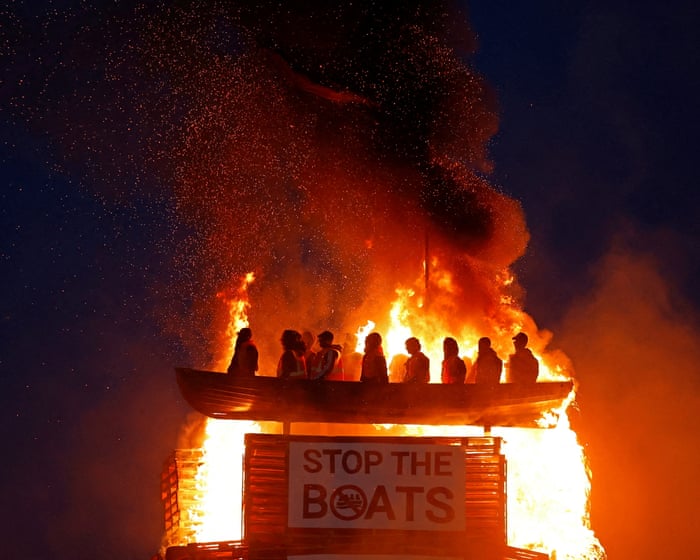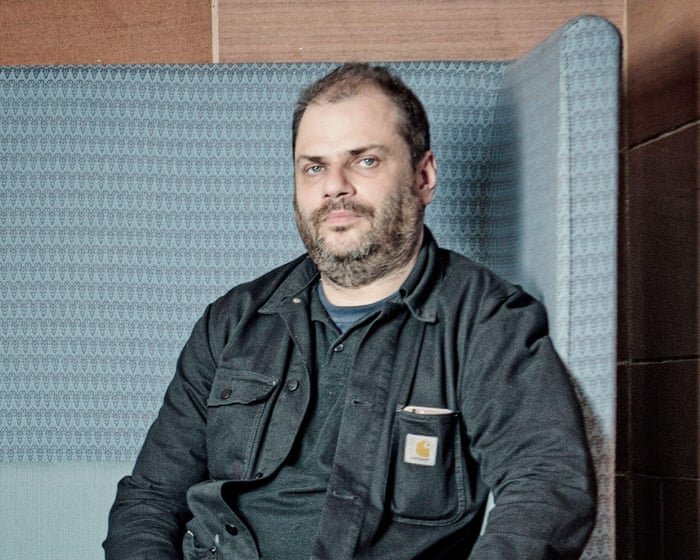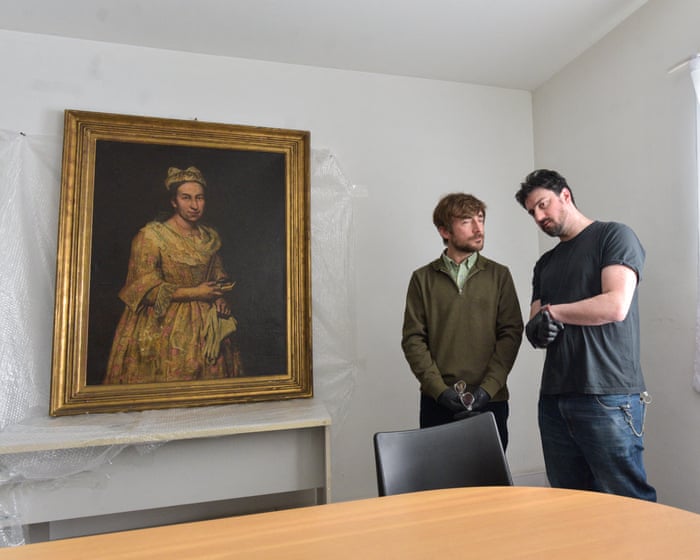The disturbing scene of a refugee effigy being burned on a boat while a hostile crowd cheered in Moygashel, Northern Ireland, reveals where we stand today. Ten years have passed since Europe’s 2015 border crisis and the shock of Alan Kurdi’s tragic image—the little boy whose body washed ashore on a Turkish beach. The initial wave of compassion and solidarity was fleeting, replaced by Europe’s relentless fixation on “stopping the boats” and curbing migrant arrivals.
Since Angela Merkel’s hopeful “we can do it” declaration, we’ve grown accustomed to politicians vowing that 2015 must never repeat itself. Across Europe, leaders promise to crack down on migration, dismantle smuggling networks, tighten borders, and expand detention and deportation systems. A controversial migration pact was approved, while Frontex, the EU border agency, saw its budget skyrocket from €97.9 million in 2014 to €922 million in 2024. Border zones have been militarized, and enforcement has been outsourced to non-EU countries acting as Europe’s gatekeepers.
Over this decade, we’ve also grown numb to the human cost of these harsh policies. Reports of migrants trapped in Libyan detention centers—described by German diplomats in 2017 as “concentration camp-like”—no longer spark outrage. The yearly deaths of thousands in the Mediterranean barely register, nor does the persecution of activists trying to prevent drownings. Shipwrecks have become so routine they rarely make headlines.
What does dominate the news is the framing of migration as an endless emergency—a narrative exploited by far-right groups and echoed by mainstream parties. Instead of offering balanced solutions, so-called “centrist” politicians fuel fear, pushing extreme rhetoric that often mirrors far-right conspiracy theories about “invasion” and the “great replacement.”
In France, Prime Minister François Bayrou warned of being “overwhelmed” by migrants. In the UK, Keir Starmer claimed the country risked becoming an “island of strangers.” In Germany, Friedrich Merz blamed migration for “imported” antisemitism, suggesting that combating hatred meant restricting immigration.
These leaders peddle a dangerous illusion: that harsher borders and repression can solve complex global crises. In reality, war, genocide, economic inequality, climate disasters, and authoritarian regimes will continue driving people to flee. Borders can’t erase the need to migrate—they only create more suffering.
Unable—or unwilling—to address the root causes of migration, governments instead stage “border spectacles”: performative, often violent acts of exclusion that divide society into those who belong and those who don’t. A decade after the so-called “crisis” of 2015, we’re witnessing a toxic convergence of racism, political opportunism, and failed policies—with no end in sight.Several troubling trends are emerging across Europe that should concern us all.
First, there’s a worrying shift toward far-right politics and growing authoritarianism. In Germany, the extremist Alternative for Germany (AfD) has become the largest opposition party and even leads in some polls, mirroring the rise of Reform UK in Britain and the National Rally in France. Mainstream parties haven’t just failed to counter this trend—they’ve helped normalize far-right rhetoric and policies. Worse still, by collaborating with repressive regimes outside Europe on migration control, they’ve bolstered authoritarianism abroad. Tunisia is a prime example, where European financial and political support has strengthened the security forces of its authoritarian leader, Kais Saied, who himself promotes “great replacement” conspiracy theories about migration.
Second, the idea of a “post-national” Europe is fading. The false promise that stricter borders will solve migration has fueled the illusion that reclaiming national sovereignty is the answer. Brexit is the clearest example—the UK’s disastrous “take back control” approach actually led to increased migration. Across the EU, we’re seeing more internal border controls, undermining the core principle of free movement and signaling a retreat from the vision of a united Europe.
Third, legal norms and institutions are under attack. The normalization of violent anti-migration measures, including mass pushbacks, has eroded human rights. Some EU states have legalized rights violations at borders, while Greece even suspended asylum procedures this summer. International refugee protections are being dismantled, and asylum as a concept is dying.
Europe’s border obsession hasn’t achieved its goal of deterring migration, but it has had dangerous consequences—for refugees and for society. The burning of refugee effigies is the result of years of dehumanization. Across the political spectrum, from the center to the far right, a dangerous border fantasy has taken hold—one that will continue to divide, harm, and kill.
Dr. Maurice Stierl is a migration and border researcher at the University of Osnabrück, Germany.
Do you have thoughts on this article? To submit a letter (max 300 words) for possible publication, email us.



